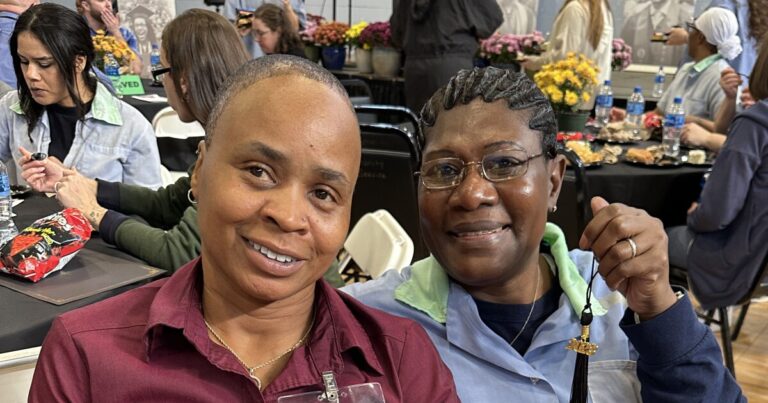Last November, at the Dayton Correctional Facility, Sinclair Community College President Stephen Johnson recognized more than 100 women wearing black gowns and caps. Tonya Anderson was one of them.
She earned her Customer Service Certification through Sinclair's Prison Education Program. The day after her graduation, the state released Anderson from her DCI. She currently works in a retail store in Clermont County.
The Ohio Department of Rehabilitation and Correction (ODRC) has been providing free basic education since 1972.
But Anderson says most workers now need higher-level skills to get decent-paying jobs.
Anderson hopes ODRC will update the program by providing more advanced technical training at all 28 prisons in Ohio.
“We don't have the right things to prepare for it,” Anderson said. “We don’t have the right equipment, we don’t have the database, we don’t have any of that.”
influx of work
The Department of Employment and Family Services estimates there will be more than 685,000 job openings in Ohio's economy each year through 2028. Many of them require advanced technical skills such as software and web development, databases and cybersecurity.
Anderson says most of her graduates earn certificates in common soft skills, such as customer service. She wishes she had gotten something that would have better prepared her for the thousands of high-paying tech jobs expected to come to Ohio from companies like Joby, Intel, Google, DSV, and Path Robotics. I hope so.
“There's nothing high-tech in the prison system, so we couldn't access it through Sinclair,” Anderson recalled.
new opportunities
ODRC is working to provide exactly the type of training Anderson is talking about.
“We provide training in the field of 5G broadband for men and women. That program is offered by Ashland University at its Richland and Belmont facilities, and is open to men and open to women. ,” explained Jennifer Saunders, superintendent of the Central Ohio School System, which oversees all prison education programs.
Sanders said the certificate program would qualify ex-offenders to enter the 5G broadband industry. Additionally, inmates are trained to work on cell phone towers and the Warren County Career Center teaches advanced manufacturing at Warren Correctional Facility.
ODRC is working with the Office of Workforce Transformation and its educational partners in Work and Family Services to develop more high-tech training programs for all inmates.
“With approximately 18,000 jobs being released annually in Ohio, we believe the workforce will be critical to meeting the employment needs of our communities, especially in this sector of the job market,” Sanders said. Ta.
Other barriers
However, not everyone can attend these advanced classes. Spaces in each course are limited and inmates closest to release are selected first.
Additionally, inmates must pay for some of these high-tech courses. ODRC says you can apply for a Pell Grant if you don't have the personal funds. Last July, Congress restored access to these federal funds for prisoners.
Anderson is grateful for the training he received while incarcerated at DCI. She advises all inmates to take advantage of as many educational programs as possible.
“Whether it's a college program or just something that challenges you. If you want to be a better version of yourself, do something outside of your comfort zone,” Anderson said. .
She's optimistic that ODRC's new technology course will help with that.


